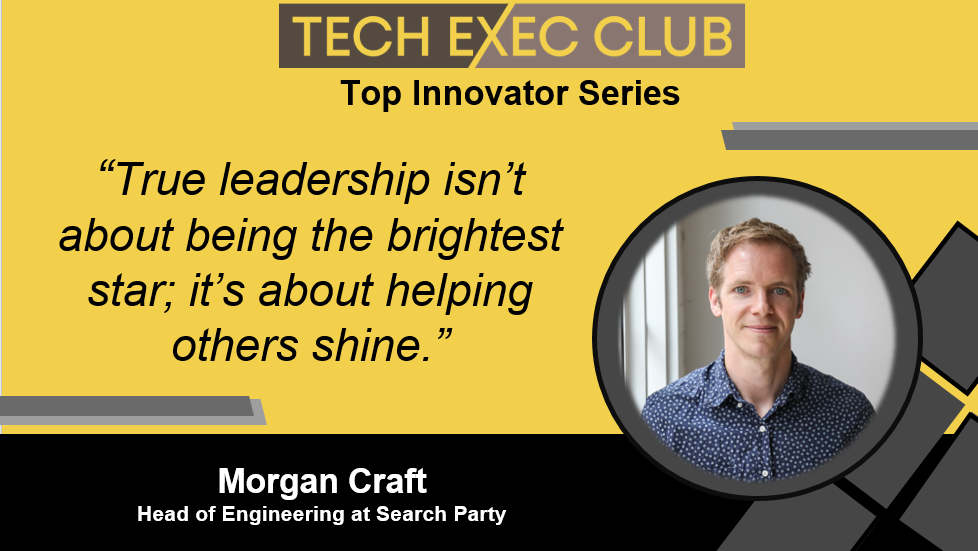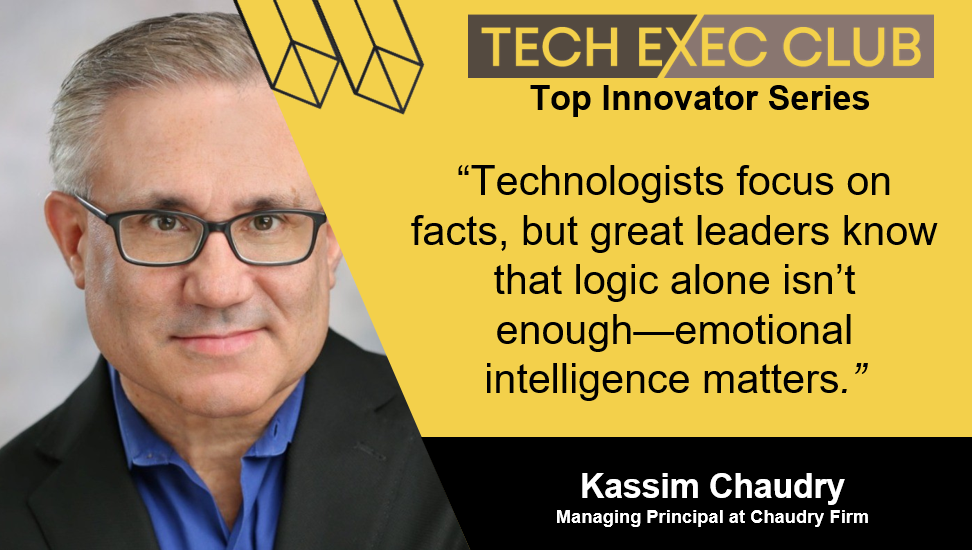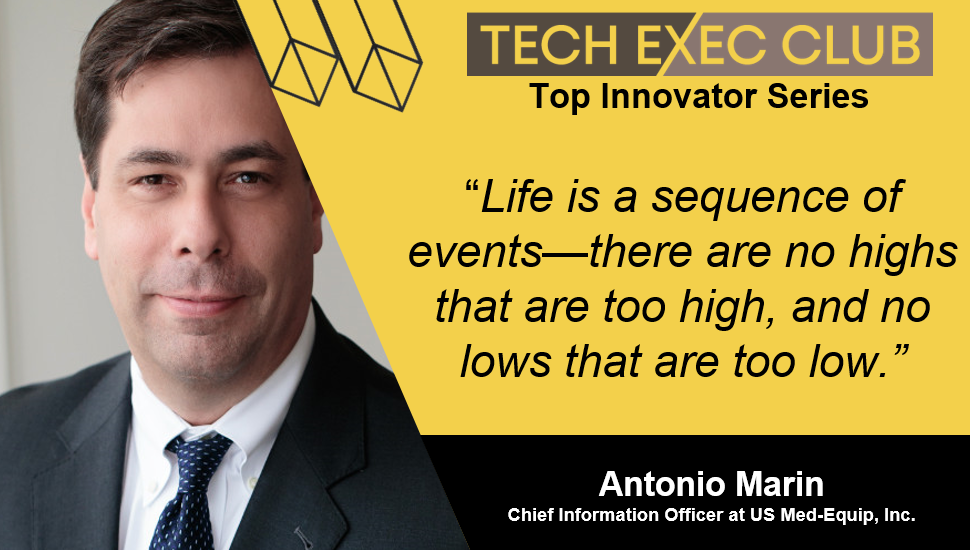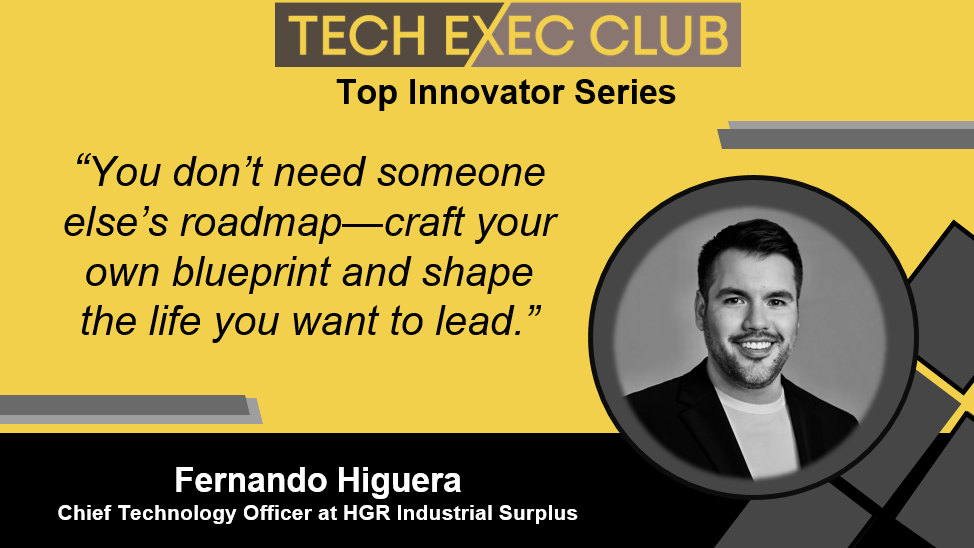In the ever-evolving world of technology leadership, where the race to be the brightest star often overshadows the importance of fostering a strong, cohesive team, Morgan stands out as a beacon of humility and mentorship. His success as a CTO isn’t attributed to being the loudest voice in the room or constantly striving to be correct. Instead, Morgan’s approach is deeply rooted in continuous learning, empowering others, and embracing the value of humility in leadership. In a recent interview, Morgan shared the ingredients that have propelled him to success, offering insights into how these principles shape his leadership style and the teams he mentors and leads.
The Power of Humility and Empowering Others
Morgan’s approach to leadership is grounded in a philosophy that many might find counterintuitive in a high-stakes industry like tech: humility. “It’s not about being the best or the smartest,” he explains. For Morgan, authentic leadership empowers others to reach their full potential. This philosophy is evident in how he approaches one-on-one meetings, not as a means to assert dominance or prove his expertise but as an opportunity to uplift others. “When you focus on empowering others, it’s not just about their growth—it’s about the team’s collective success.” His leadership style is a testament to the belief that greatness is achieved not by shining the brightest but by helping others shine alongside you. This approach fosters a collaborative environment and builds a resilient team capable of facing challenges head-on.
The Role of Mentorship in Career Growth
Mentorship, both received and given, has been a cornerstone of Morgan’s career. He candidly shares how the lack of mentorship in his early career posed significant challenges, leaving him to navigate the complexities of the tech world on his own. However, the structured discipline of ex-military colleagues and a pivotal sales mentor eventually provided the guidance he needed. “These mentors taught me the value of discipline, process, and the importance of stepping outside the engineering swim lane,” Morgan reflects. He has come full circle today, dedicating much of his time to mentoring others. Whether through formal mentoring relationships or casual guidance, Morgan sees mentoring as his “superhero skill,” which has shaped his career and allowed him to build a network of professionals who value his insights and support. This network, cultivated over two decades, serves as both a resource and a testament to the impact of effective mentorship.
Challenges of Delegation and Letting Go
As a leader, Morgan has faced the common yet daunting delegation challenge. Initially, his reluctance to delegate stemmed from a fear of failure—not his own, but that of his team members. “The hardest part wasn’t handing off the work,” he admits, “trusting that the person I delegated to could handle it.” Over time, Morgan has learned to balance this fear with the necessity of allowing others to grow, even if that growth comes with occasional setbacks. He now understands that leadership is about letting go and recognizing that not every project will go perfectly, but that’s part of the learning process for everyone involved. This evolution in his approach to delegation has not only relieved some of the pressures he faced as a leader. Still, it has also empowered his team to take ownership of their work, fostering a culture of accountability and growth.
Burnout and the Role of AI in Extending Career Longevity
Burnout is a reality that many in the tech industry face, and Morgan is no exception. After years of coding and leading teams, he questioned the future—his career and the industry itself. The rise of AI, however, has offered a surprising reprieve. “AI has extended my career as a contributor,” Morgan reveals, explaining how tools like AI-assisted coding have alleviated the physical and mental demands of programming. These tools have allowed him to maintain his productivity and continue contributing to projects without the burnout that once loomed large. For Morgan, AI is not a replacement for human expertise but a valuable assistant that can handle the more tedious aspects of coding, allowing seasoned professionals like him to focus on higher-level problem-solving and strategy.
Navigating the Future: Fractional CTO Work and Personal Fulfillment
Looking ahead, Morgan envisions a future where he transitions from hands-on roles to more advisory positions, particularly in the fractional CTO space. “I’m moving towards helping startups find the right fractional CTOs and mentoring them, rather than being the one in the trenches,” he says. This shift aligns with his desire for a balanced life where he can enjoy the fruits of his labor and spend more time with his family. As he contemplates this next phase, Morgan also considers the possibility of launching a fractional CTO academy. In this space, he can formalize his mentorship and help others navigate the complexities of tech leadership. Whether through this new venture or a long-dreamed-of game studio, Morgan focuses on meaningful work that aligns with his values and personal fulfillment.
If you’re a leader or aspiring to be one, Morgan’s insights provide a roadmap for cultivating a successful and fulfilling career in the tech industry. Here’s how you can apply his principles to your journey:
1. Embrace Continuous Learning: Adopt a learning mindset and encourage it within your team. Just as Morgan continuously pushes himself and those around him to grow, he must stay updated with industry trends, new technologies, and innovative practices. Schedule regular one-on-ones with your team to discuss personal development goals and provide resources for continuous learning.
2. Focus on Empowering Others: True leadership isn’t about being the most innovative or successful person in the room. It’s about empowering your team to excel. Start by recognizing and nurturing others’ potential. During meetings and one-on-ones, shift the focus from what you can achieve to how you can help others succeed. Encourage your team members to take on new challenges and provide the support they need to grow.
3. Practice Humility and Let Go of Ego: Morgan emphasizes the importance of humility in leadership. Make it a point to step back and allow others to take the spotlight. When successes occur, give credit to your team and celebrate their achievements. If mistakes happen, use them as learning opportunities rather than occasions to assign blame. Reflect regularly on your leadership style and be open to feedback that can help you grow.
4. Prioritize Mentorship: Whether early in your career or as a seasoned leader, mentoring should be a core part of your professional life. Like Morgan, who has built his career around mentoring others, he seeks opportunities to mentor junior colleagues or peers. If you need a mentor yourself, take proactive steps to find one. Consider setting up a formal mentorship program within your organization or joining external networks where you can offer and receive guidance.
5. Learn to Delegate and Accept Failure: Delegation is a critical skill for leaders, but it often comes with the fear of failure. Morgan learned that letting others fail is okay because it’s part of the learning process. Start by gradually delegating responsibilities and trust your team to handle them. When mistakes happen, use them as coaching moments. Over time, this will build a stronger, more capable team and free you up to focus on higher-level strategic tasks.
6. Leverage AI and Technology to Enhance Your Work: Morgan found a way to overcome burnout by embracing AI tools that assist with coding and other tasks. Explore how AI and other emerging technologies can streamline work, increase efficiency, and reduce stress. Invest time learning how these tools can be integrated into your daily workflow, and encourage your team to do the same. This will keep you ahead of the curve and help you maintain a sustainable pace in your career.
7. Reflect on Your Long-Term Goals: As Morgan transitions to more advisory roles and considers the next phase of his career, reflect on your long-term goals. Are you on the path that aligns with your values and personal aspirations? Consider what success looks like for you beyond titles and financial achievements. Whether moving into a more flexible role, focusing on mentorship, or starting a new venture, ensure that your future steps align with what truly matters to you.
By integrating these actions into your leadership approach, you can create a more fulfilling career and make a lasting impact on those you lead. Start today by choosing one area to focus on, and gradually build these practices into your daily routine. Like Morgan’s, your journey is an ongoing process of learning, adapting, and empowering others along the way.
Morgan’s story is a testament to the evolving nature of leadership in the tech industry. From his early struggles with finding the right mentors to his current focus on empowering others and navigating the complexities of delegation, Morgan exemplifies what it means to be a leader who prioritizes the growth and success of his team over personal accolades. His humility, combined with a relentless commitment to continuous learning, has shaped his career and positively impacted the lives of those he has mentored and worked alongside. As Morgan looks to the future, contemplating new challenges and opportunities, his focus remains clear: leading with empathy, fostering innovation, and ensuring that others have the tools and support they need to succeed. It’s a timeless leadership style that is urgently relevant in today’s rapidly changing world.






